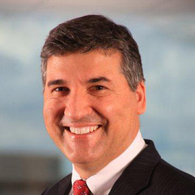Early this summer, the U.S. House of Representatives narrowly passed a bill (H.R. 1215 the deceptively titled “Protecting Access to Care Act”) that would limit the “non-economic” money damages available to patients in medical malpractice cases nationwide to $250,000. This bill is a “solution” to something that is not a problem and would be harmful to tens of thousands of people who suffer serious injuries every year from mistakes by doctors, hospitals, pharmacists and other health-care providers.
Among other things, the bill would limit noneconomic awards (such as damages for pain and suffering) for medical malpractice to $250,000. That means that people who suffer embarrassment, humiliation and emotional distress for the rest of their lives because of a medical error will never be able to receive appropriate compensation for their suffering. As an example, a patient who is horribly disfigured by a medical mistake would be limited to an award of $250,000 because the injury did not “cost” anything.
Interestingly, support and opposition to the bill did not fall along the usual ideological lines. Democrats typically oppose caps on malpractice awards precisely because they are harmful to consumers, and Republicans usually support these caps. Here, however, 19 conservative Republicans joined Democrats in opposing the bill in the House because they felt it was an improper intrusion of the federal government into tort law, which is a state matter.
The bill, which is supported by the Trump administration, passed the House by the slim margin of 218 to 210.
Former U.S. Attorney General Ed Meese, who is certainly considered a conservative, sent a letter earlier this year to House Speaker Paul D. Ryan (R-Wis.), saying that the bill was a “sweeping effort to federalize tort law with our system of federalism, which reserves that province solely to the states.”
My concerns are somewhat different, but it is good that the bill has found opposition of more than one type.
As I wrote earlier this year on this topic,
The nation is not in the midst of a medical malpractice crisis. Far from it, the system is working quite well. Doctors are paying less for malpractice insurance now than they did in 2001, even after adjusting for inflation. Even without any of these draconian reforms the rate of claims has dropped by half since 2003. . . .
In fact, unlike most malpractice damage cap provisions that have been passed by state legislatures, this bill puts a ceiling on awards to people who have suffered injury from unsafe drugs. As Joanne Doroshow, executive director of the Center for Justice & Democracy at the New York University Law School, wrote in Huffington Post, the bill is “one huge, deceptive gift to the pharmaceutical industry.”
The bill’s prospects in the U.S. Senate are not clear. This month, the Senate will be tackling the national debt ceiling, Hurricane Harvey relief, possibly a comprehensive tax reform package, and other major issues. Regardless of the legislative schedule, this is a pernicious bill that needs to be defeated.






